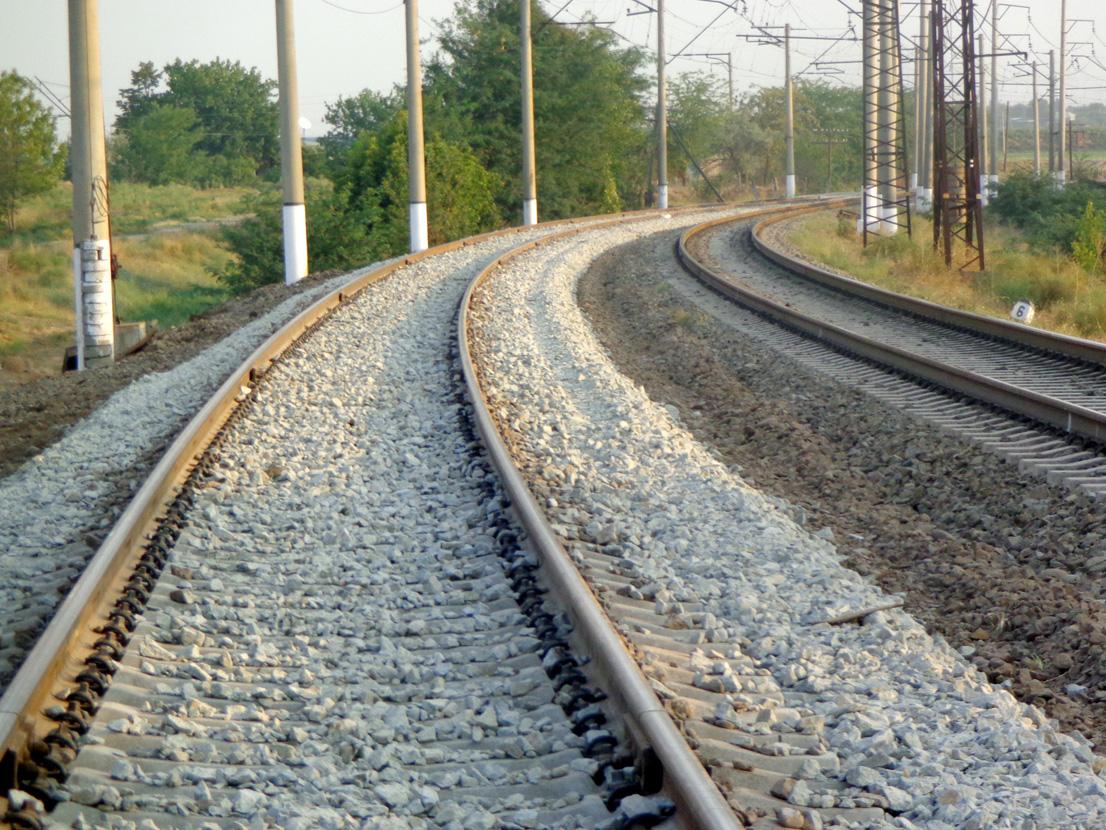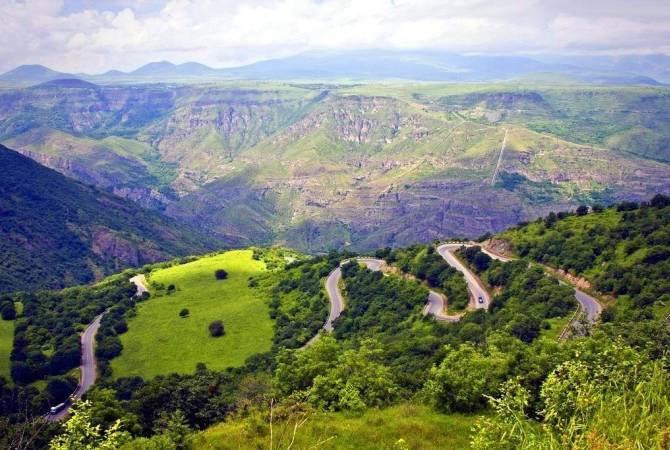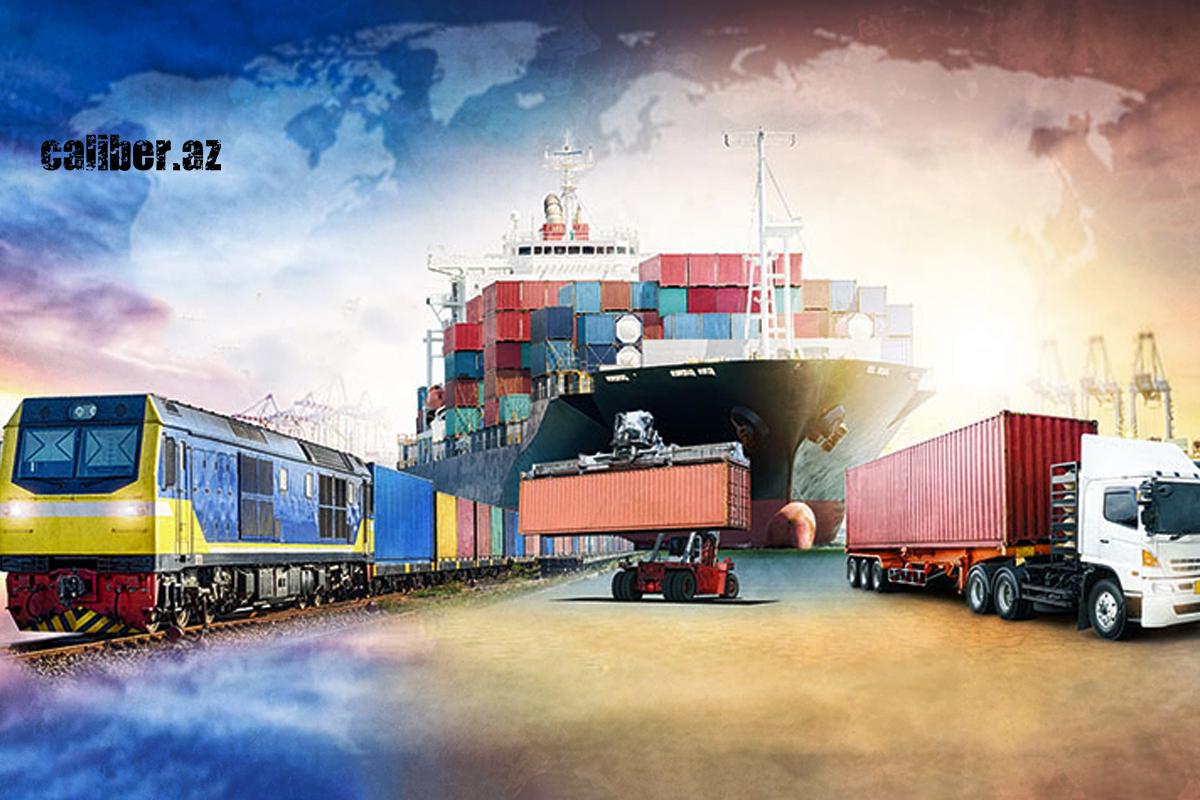Zangazur corridor - a project that unites the world's antagonists Analysis by Caliber.Az
Azerbaijan maintains the high speed of construction of the railway and road infrastructure of the Zangazur corridor with the expectation of completion of these works in 2023. The new corridor will not only expand the transport and logistics potential of our country but will also open up additional opportunities for cargo carriers from neighbouring states. Azerbaijan’s President Ilham Aliyev spoke about this on May 4, praising the prospects of infrastructure projects in the East Zangazur economic region and their role in the formation of new transport realities in the region.
"The construction of the Azerbaijani part of the railroad within the Zangazur corridor will be completed in 2023. The Zangazur corridor is already a reality, the construction of the railroad from Goradiz to Aghbend (110.4 km to the border with Armenia) is going at a fast pace, and I am confident that next year this line will be fully commissioned. This will be a very convenient infrastructure for both citizens and international shippers," the president said during the reception in the video format of Vahid Hajiyev in connection with his appointment as Special Presidential Representative in the Zangilan region.
It should be recalled that the railway project is divided into three stages within the framework of which it is necessary to perform many complex engineering and construction works in the mountainous terrain: to lay more than one hundred kilometres of rails and to build 41 bridges, 8 stations and 3 tunnels.

President Ilham Aliyev emphasized that within the framework of creating infrastructure for the new corridor, the four- and six-lane Horadiz-Jabrayil-Zangilan-Agband highway is being built at an accelerated pace. The new 123.8 km road will be laid along a completely new, more convenient and shorter route. Construction of the roadway, bridge-building, tunnelling and drainage on the route is carried out at a high technical level and according to the established schedule. The road sections of this highway are planned to be put into operation in stages, starting from 2023. In addition, a multi-lane road from Zangilan to Gubadli and from Gubadli to Lachin is currently under construction to provide a link between the regions of the Eastern Zangazur Economic Region. At the same time, the road from Horadiz to the west, which has been preserved since the Soviet era, will be overhauled.
In general, the "steel" and motorways within the Zangazur corridor in the future will not only connect the main part of Azerbaijan with the Nakhchivan Autonomous Republic but will also create a new transport alternative for the expansion and diversification of international cargo transportation. Speaking about the international prospects of the new transport initiative, the president reminded us that the number of inquiries from countries in the eastern part of the Caspian Sea has significantly increased today, and the number of those wishing to send cargo via Azerbaijan is on the rise. In this regard, the commissioning of the Zangazur corridor will create additional opportunities both for cargo carriers from neighbouring countries and more remote regions of the world.
A lot of facts testify to the high trade and logistics potential of the actively formed Zangazur corridor. Today, not only the direct beneficiaries - Azerbaijan and Turkey - but also the Central Asian states, Russia, Iran, European countries and even China are interested in the prompt realization of this project.
In particular, Azerbaijan is counting on the transport unblocking of the Nakhchivan Autonomous Republic (NAR), as well as taking advantage of this shortest route to transship considerable volumes of cargo to the Turkish market. As key trading partners, Azerbaijan and Turkey are bound by a preferential trade agreement and plan to increase trade turnover to $15 billion in the next few years. In addition, the development of the corridor will provide the NAR with the status of a regional transport hub, attracting investments not only in logistics but also in industry and agro-processing with subsequent export of products to the same Turkish market. The passage of the railway and highway through the territory of the Eastern Zangazur Economic Region creates preconditions for the development of service, logistics and other businesses. The new corridor will become the shortest way to bring local products to foreign markets, as the agricultural, mineral and other resource bases of the liberated territories are developed.
Neighbouring Iran is also interested in the implementation of the Zangazur corridor, which expects to get transit traffic via Azerbaijan to Russia through the Julfa railway network in NAR, as well as a high-speed road link in the northern direction with an additional option - the possibility of access to the Black Sea ports of Georgia. No wonder the Islamic Republic of Iran (IRI) plans to be directly involved in this project: a memorandum of understanding was signed providing for the creation of a transport link between the East Zangazur Economic Region of Azerbaijan and the Nakhchivan Autonomous Republic through the territory of Iran, on March 11 of this year, following the results of the 15th meeting of the Azerbaijani-Iranian intergovernmental commission. The document provides for the construction of a highway of 55 km and parallels railway line Imishli (Azerbaijan) - Parsabad (Iran), four bridges over the river Araz (on the Azerbaijan-Iran border), including two motorway bridges with a crosswalk and two railway bridges, as well as building communication infrastructure and power lines across Iranian territory. It is also planned to build customs and border crossing points with a daily capacity of about 1,000 trucks. It is planned to implement the plans without delay. On April 5, President Ilham Aliyev signed a decree approving this memorandum, thus starting preparations for the design, financing and other work preceding the construction, which is expected to be completed within six months.
In turn, Russia is also interested in the Zangazur route, seeking to expand trade and economic ties with Turkey, as well as hoping for direct overland access to Armenia, bypassing the not always reliable Georgian transit. Not to mention the fact that the war in Ukraine since late February and the anti-Russian sanctions have significantly limited Russian companies' access to global transport hubs, primarily in Europe and North America. Against this background, Russian cargo carriers are planning to redirect about half of their external cargo turnover to Turkey and the North-South corridor (via Iran in the direction of India and the ports of the Persian Gulf). In this case, the most optimal route to the south passes through Azerbaijan, including the Zangazur corridor - the shortest and most cost-effective overland route from the Russian border to Turkey, which is extremely important given the two countries' plans to increase mutual trade turnover from the current approximately $25 billion to $100 billion in the next year or two.

In the near future, freight forwarders from Central Asian countries are planning to join the Zangazur corridor, and are also extremely interested in the shortest routes in the direction of Turkey. Cotton and textiles, ore concentrates, fertilizers, and products of chemical and food industries - this is an incomplete list of products that Central Asian countries could transship through the new corridor. According to preliminary calculations, transportation of truck trailers and rail containers by ferries, Ro-Ro and Ro-Pax vessels across the Caspian Sea to Alat port and further through the Zangazur route to the Mediterranean ports of Turkey will take much less time (including cross-border procedures) than any other alternative overland route.
"In the context of anti-Russian sanctions amid the war in Ukraine, the traditional transport routes passing through Eurasia are under threat," the China Global Television Network (CGTN) said in a recent report. - The EU has closed European ports for Russian-flagged ships. Thus, China, which used to send cargo to European partners by rail through Russia and Belarus, cannot be sure of their safety and timely delivery. In this regard, the importance of the "Middle Corridor", formed within the framework of the Chinese "Road and Belt" initiative, and designed to link China with Turkey and Europe, has increased significantly today." Due to the transit problems mentioned above, Chinese shippers today are extremely positive about the plans to launch the Zangazur corridor, which, in combination with the Trans-Caspian International Transport Route (TMTM) - its key operators are Kazakhstan and Azerbaijan - is considered the shortest route in the western direction.
Many EU countries take a similar view. They consider the transport capabilities of the Zangazur route as an important and useful component of the corridor - Europe-Caucasus-Asia (TRACECA), initiated by the European Union at one time. "The tragic events in Ukraine destroyed trade cooperation between East and West, so there was a dramatic need for alternative transport routes. In particular, the opening of the Zangazur corridor could make a significant contribution to these processes," Svante Cornell, director of the Swedish Institute for Security and Development Policy, recently noted.
General Director of the Baku International Sea Trade Port (BISTP) Taleh Ziyadov has recently spoken about the increasing role of Azerbaijan in the global supply chain between Europe and Central Asia and China. According to him, the geopolitical changes of recent times have noticeably increased the potential of the TM TM route, not only for the countries of the region but also for the landlocked states, as well as in terms of creating logistics between China and Europe. "Containers from the Black Sea ports are already delivered to the port of Baku, and we will play the role of a distribution centre, becoming a key logistics hub. Well, the new realities, as the Zangazur corridor project is implemented, will allow covering not only the transportation of goods along the "North-South" route, including goods from Central Asia and China but also cargoes from the Mediterranean region," Ziyadov stressed.

In a word, the Zangazur corridor is a unique project in the realization of which the most antagonistic poles of the world are interested: this circumstance guarantees a high workload of the route, which will allow Azerbaijan to quickly recoup a considerable part of investments, directed to the development of the transport network in the Karabakh region.
And what is the role of Armenia, which undertook obligations after Azerbaijan's victory in the 44-day war to unblock the transport communications, including participation in the formation of the Zangazur corridor? Alas, despite the trilateral statement signed on November 10, 2020, by the leaders of Azerbaijan, Russia and Armenia, the establishment of a specialized working group and numerous subsequent agreements, including those mediated by Moscow and Brussels, Yerevan is still not ready to fully engage in the process of regional transport integration.
"Armenia has not given us the geographic coordinates of the section in the Meghri region where the railway line is to be laid; they have not even started working on the feasibility study for the construction of the railroad to the border with Azerbaijan. Will Armenia be involved in this process? I do not know. I think that if they do participate, it will be good for everyone, and the route of the Zangazur corridor we offer will pass through their territory. I am sure it will pass, but they are losing time again because we are already building a highway and a railroad to the border with Armenia", President Ilham Aliyev stated recently in Baku at the meeting with the representatives of foreign analytical centres within the international conference "South Caucasus: Development and Cooperation".
At the same time, the president recalled that the recent agreements with Iran on laying transport communications on the territory of Iran leave Armenia at a loss, and if Yerevan doesn't realize the need for mutually beneficial regional cooperation, the outsider Armenia will remain in a transport deadlock, as it happened when Azerbaijan and Georgia laid Baku-Tbilisi-Kars railroad line bypassing Armenian territory.








